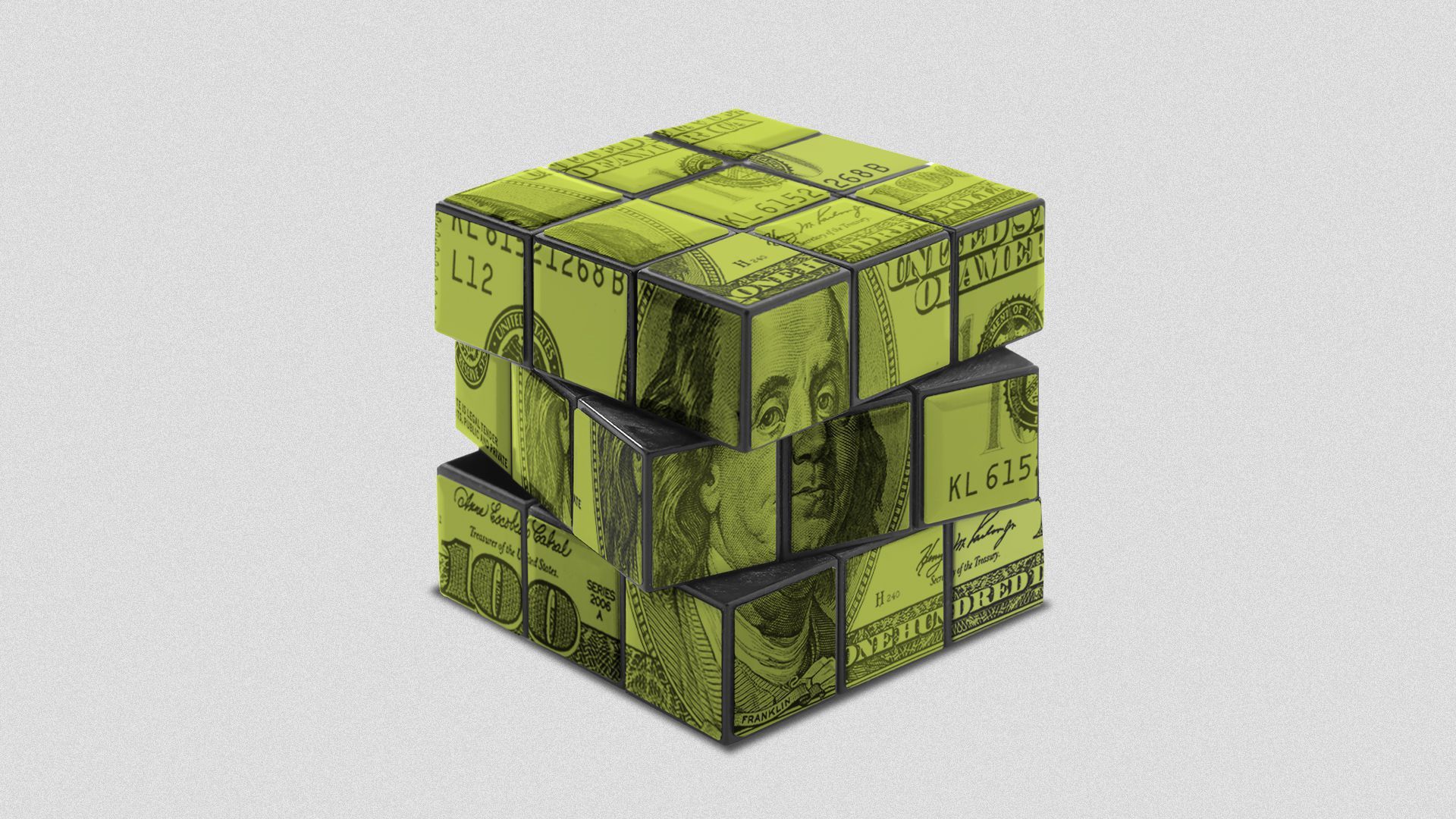Why it's so hard to tax wealth
Add Axios as your preferred source to
see more of our stories on Google.

Illustration: Sarah Grillo/Axios
The wealth tax that wasn't a wealth tax isn't even a tax, now. The Democrats had a meticulously constructed 107-page proposal to pay for a large chunk of their spending plans with a tax on billionaires, but it died ignobly on Wednesday, the same day it was unveiled.
Why it matters: The dream of a wealth tax will never die as it so neatly generates revenue by reducing inequality. But there are three main reasons why that dream is likely to remain just a dream for the foreseeable future.
1. The Constitution:
- Article I of the Constitution, Section 9, bars any "capitation, or other direct, tax" — unless such a tax is levied in direct proportion to the number of people who live in each state.
- The Supreme Court ruled in 1895 that a federal income tax was therefore unconstitutional. The 16th Amendment, ratified in 1913, made income tax constitutional, but many scholars believe it doesn't cover a wealth tax.
- An outright tax on wealth, as proposed by Sen. Elizabeth Warren (D-Mass.), would face a massive obstacle in the current Supreme Court.
- The billionaire tax proposed this week didn't tax wealth directly — billionaires would owe nothing if their wealth was falling rather than rising. But it would still have faced a stiff legal challenge.
2. The billionaires:
- The world's richest person, Elon Musk, opposed the tax in public; it's reasonable to assume that the overwhelming majority of the 700 or so other billionaires affected by the bill opposed it in private.
- Those billionaires, collectively, have enormous political power — and they also have the best legal advice that money can buy.
- It's hard to tax illiquid wealth, but if you try to carve out exceptions for illiquid assets then the private-wealth industry will always try to find a way to turn liquid assets into illiquid ones, for tax purposes, or to create structures that otherwise seek to avoid the tax.
- The billionaire-tax proposal attempted to close the loophole that allows the ultra-rich to borrow against their appreciated assets instead of selling them, thereby avoiding a taxable event. When one loophole closes, however, another tends to open.
3. Americans:
- The American Dream envisages accumulating wealth through hard work, while a wealth tax — almost explicitly Marxist, in the sense of "from each according to his ability" — cuts in the exact opposite direction.
- Many Americans, including Sen. Joe Manchin (D-W.Va.), who killed the billionaire tax yesterday, see something unfair about singling out billionaires for extra taxation — especially when many of them dream of one day joining those ranks themselves.
The bottom line: A wealth tax, or even something like the billionaire tax that's wealth-tax adjacent, carries an unmistakable aroma of socialism. And America isn't (yet) a socialist country.
